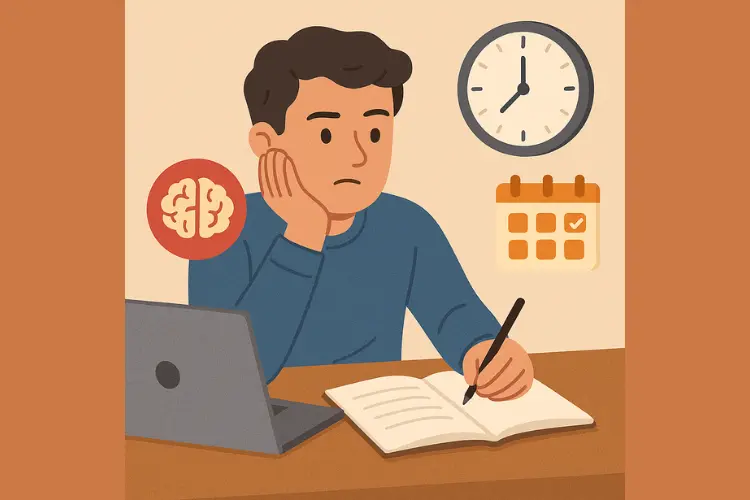Introduction: Why Social Media Feels Like a Double-Edged Sword
Social media keeps us connected. We share updates, follow others, and stay informed in real-time. But this convenience may come with a price.
Experts now recommend stepping back from constant scrolling. A University of Copenhagen study reveals something eye-opening—quitting Facebook for just a week can make people feel significantly happier. This blog dives into those findings and highlights how reducing social media use can enhance well-being.
1. What the Study Reveals About Facebook and Happiness
Denmark’s Happiness Research Institute ran a survey with over 1,000 people. The goal? To understand how Facebook impacts emotional health and life satisfaction.
Key takeaways from the research:
- 94% checked Facebook daily
- 78% used it for over 30 minutes each day
- Their average happiness rating was 7.6 out of 10
Participants were split into two groups. One group kept using Facebook. The other avoided it entirely for a week. At the end of the trial, both groups took the same survey again.
Results showed a clear difference—those who took a break felt much happier.
2. A Week Without Facebook: The Outcome
Facebook users saw a small mood boost, from 7.6 to 7.75. But those who logged off saw their score rise to 8.12.
That’s a 7% jump—three times more than those who stayed active on Facebook.
The group that disconnected reported:
- Greater enthusiasm and joy
- Better decision-making
- A deeper enjoyment of everyday life
They also felt fewer negative emotions like sadness, stress, and loneliness. Just seven days made a clear difference.
3. Virtual Connections vs. Real-Life Socializing
Facebook may feel like a social tool—but it doesn’t always improve social lives.
Those who quit Facebook felt more satisfied with their social experiences. They also spent more time with people in person.
Why? Facebook offers a filtered, often misleading view of life. Users post highlights—not their real struggles. It creates an illusion that everyone else is constantly happy.
Stepping back allowed participants to reconnect with genuine experiences and people around them.
4. Regaining Focus, Managing Time, and Reducing Stress
Many Facebook users struggle with distractions. But those who quit for a week said they regained mental clarity.
Here’s what the study found:
- Facebook users were 55% more likely to feel overwhelmed
- 18% were less present in the moment
- People who quit felt they used their time more wisely
Without the urge to constantly check notifications, people focused better, enjoyed their tasks, and stayed grounded in the present.
Even a few extra minutes away from the screen can lead to greater productivity.
5. The Problem with Constant Comparison
One of the study’s most powerful findings was this: 39% of active Facebook users felt less happy than their friends.
Scrolling triggers comparisons. We see vacations, success stories, celebrations—while our own lives may feel ordinary by comparison.
But this comparison is often unfair. It damages confidence and leads to negative self-image. The group that left Facebook felt more secure and content.
6. You Don’t Have to Quit Completely: Smarter Usage Tips
If quitting cold turkey sounds difficult, try adjusting your habits instead.
Here are some practical ideas:
- Engage, don’t just scroll: Start conversations instead of lurking
- Track your screen time: Set a daily limit to avoid endless browsing
- Be mindful of comparisons: Remember, people share their best moments
- Celebrate others’ wins: Cheer for others without judgment
- Unfollow or mute negativity: Clean up your digital space
A few small tweaks can reduce the pressure and bring more joy back into your online experience.
7. Time to Reflect: Are You Using Social Media or Is It Using You?
This study is a reminder to evaluate our habits. Social media isn’t bad—but overuse and comparison culture are.
Taking breaks can:
- Boost clarity
- Improve mood
- Strengthen real-life connections
Try a week without Facebook. See how it feels. Pay attention to your focus, stress levels, and daily energy.
You may find that less screen time equals more satisfaction.
Conclusion: The Case for a Digital Reset
The research from the University of Copenhagen is clear—stepping away from social platforms, even for a short time, can create noticeable improvements in mental and emotional health.
Those who took a break felt more focused, more satisfied with their social lives, and less stressed.
If you’re ready to reclaim your time and peace of mind, consider trying a short detox. You can also use helpful tools like CleanRouter to filter content, manage online access, and set healthy digital boundaries for yourself or your family.
Sometimes, logging off is the best way to reconnect with what truly matters.




